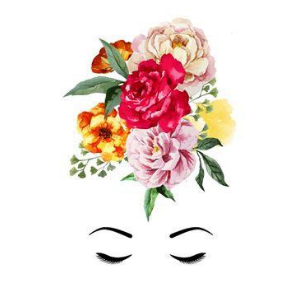
Pride in the Streets: A Queer Journey to Joy

When I was young, I couldn't figure out how to be queer. I was deep in people-pleasing, so much so that I just assumed I was hetero. When I had feelings about girls, it left me confused. I grew up in the Baptist church, where the message from the pulpit was clear: "God made Adam and Eve, not Adam and Steve." Being gay was wrong by their standards, and I was really focused on being loved in a low-affirmation childhood. School said I was good. Camp said I was good. My grandmother said I was good, but my grandma's church said being gay was bad. Making my grandma happy was paramount, and got me into being a hetero.
I’d wake up from sapphic dreams with a blush to the cheek and embarrassment. "Why would I do that with her?" I'd ask myself. The answer from a voice in the back of my mind was occasionally logical, but also often graphic in their explanation. Then you realize that is not what your friend is interested in - she's a hetero.
The conclusion: you must keep this a secret, or you will lose your friend.
I learned that the more I acknowledged these urges and desires, the less they would show up in my subconscious and sleep narratives. So, I started coming out.
And I just keep coming out. Coming out is so hard.
When you have a history of people-pleasing and perfectionism (wow, I'm just sharing it all now!), you worry about who you will lose. Sometimes it’s family. Many queers are thrust into orphanhood upon coming out to their families. But there's also the intensity loss of relationships. Imagine feeling close with a person, who upon learning of your queerness, doesn't disconnect, but the relationship shifts. A cooling of your closeness. A reduced vulnerability in your conversation. A Change.
We all hate change.
My first real coming out was to my husband, which went well. We talked about Kinsey's sex research and the continuum that they developed, and talked about how neither of us were scoring a 0 (exclusively heterosexual) or 6 (exclusively homosexual). My next most significant outing was with a friend who casually outed herself, sharing prior to her heteronormative relationship at that moment, she had previously been in a significant relationship with a woman.
I married a wonderful cis-male, who is a hetero, and my greatest ally. As we have grown together over 15 years of marriage, we embrace how gender plays out in our home. Our younger child presents with the willingness to challenge gender norms, preferring a "sporty" or "tomboy" identity. She still uses femme pronouns, and we support her in understanding the world through the normalization of queerness.
Even this blog is a coming out of sorts. Most people at my wedding do not know my queer status, and if they decide to read this blog, I will be outed.
I am thankful to be surrounded by friends and peers that support and model for me queer identity as a norm in queer relationships, but also, having out friends in heteronormative relationships has really helped me to see myself as "typical."
I came home from freshman year in college, and connected with a friend who had come out to me during winter break. We hung in Philadelphia’s iconic Gayborhood every night. A crew of teens at a coffee shop, owned by one of the kids' moms. I turned to my circle and said "I might be gay" and they told me I wasn't. I was "too femme" to be a lesbian. I got shot down. I was wearing a dress, heels and lipstick, and at that time, that’s not how my young and uninformed circle personified queerness.
The only options we knew back there were lesbian and gay for boys. No one accepted the bi kids... they were just "greedy." Pansexual wasn't a word I would know for years.
Damn, I wish Pride on this scale was a thing in 1996.
My bigger kid begged me to take her to the Pride festival in Philadelphia this year. I did. I wanted to go myself. She hoped that she and her friend could go alone (but we don't do that with 11-year-olds). So, we got dressed in our finest rainbow clothing and went to the parade. We saw queers of all ages, shapes, types, and while there, a conversation sparked that allowed my daughter to share with me her own identity. We found a street vendor and bought the appropriate flag immediately. I then reclaimed my own flag. I needed to stunt and strut too.
We were down there late in the day, when the old queers had mostly gone home or to dinner. The young people were dancing in the streets to improvised drum kits, and being with their people, feeling free. Some were dressed to impress, others were dressed to entice. No matter what we wore, we were queers in the streets, smiling and in joy for our ability to do so.
This Pride Month, as we celebrate the progress made and the joy of being our authentic selves, I also recognize that for many, being queer in this world, especially given the current sociopolitical times, can still feel incredibly hard. So, if you know a queer person in your life, reach out. Connect. Offer that unwavering support, that space for vulnerability. Be an ally not just in June, but every day. Your kindness, your understanding, and your solidarity can make all the difference.
Message Me
I'll be delighted to hear from you.
Get In Touch
Give us a call
(215) 284-9107Send us an email
[email protected]